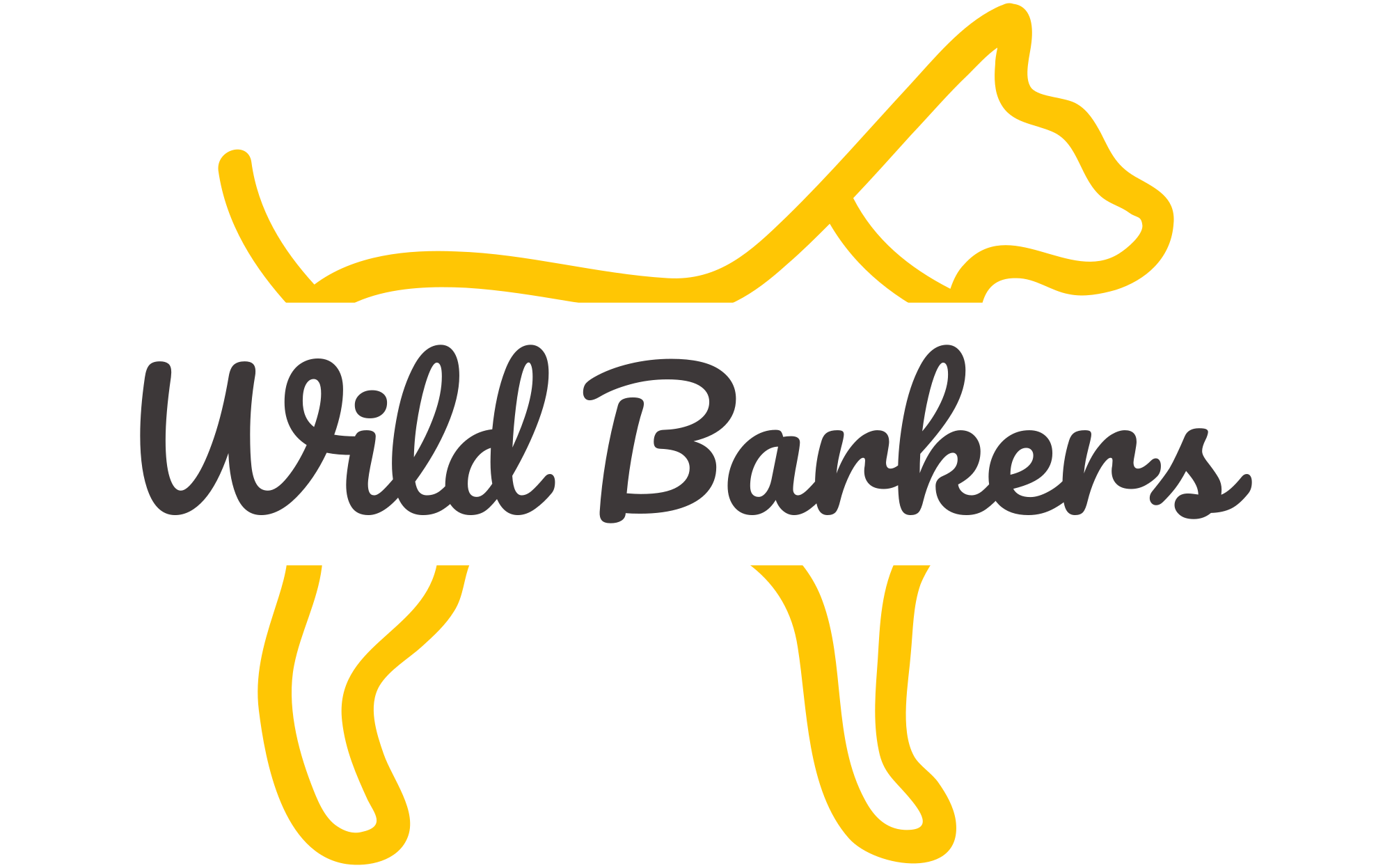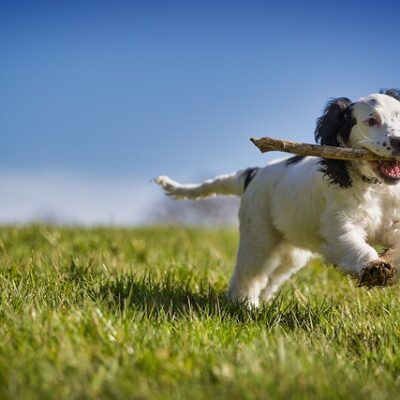
Can Dogs Eat Raw Bacon? In short, no. Feeding dogs raw pork (bacon) can have many side effects that put your pooch in a lot of stress and pain. It can be a costly mistake to feed your dog raw meats when you’re preparing a meal. This blog post will provide you with the information you need regarding feeding your dog pork and other meats.
Busy? Get Your Paws On The Answers Quickly…
- Can Dogs Have Bacon?
- Can I Feed My Dog Raw Bacon/Pork?
- Why Is Bacon Bad For Dogs?
- What Meat Is Good For My Dog?
- FAQs
CAN DOGS HAVE BACON?

Bacon is preserved pork and may be contaminated, therefore feeding it to your dog could cause them extreme pain and discomfort.
Feeding your dog raw bacon or pork is not recommended, as well as cooked bacon for different reasons. However, plain cooked white pork is ok. See below for further information.
Cooked Bacon – Although this is not toxic for dogs, cooked bacon is high in fat and salt which is not good for your dogs digestive system. A high salty and fat diet can potentially lead to obesity and other gastronomical issues.
Plain White Cooked Pork – When cooked, pork is fine for dogs. It is recommended to boil it for a number of hours. This ensures that all the nasty bacteria that was there originally is killed.
Raw Bacon or Pork – This not good for humans or dogs at all! Raw bacon or pork can contain highly dangerous bacteria that will cause severe symptoms. See blow for more details.
CAN I FEED MY DOG RAW BACON/PORK?

Eating Raw bacon or pork is both harmful to humans and dogs. The parasite, trichinella spiralis larvae, can be present in uncooked pork/bacon. This parasite ultimately causes the infection known as trichinosis. This infection can be transmitted through the muscle on meats, primarily affecting humans more than dogs. However, if you believe your dog has had raw pork or bacon, they may show symptoms such as:
- Vomiting
- Diarrhea
- Fever
- Lethargic/lack of energy
- Inflammation around the muscles
- Stiffness when moving.
WHY IS BACON BAD FOR DOGS?

Not only are the parasites in raw pork and bacon a problem for dogs, even when cooked, but the food can also still cause your dog a lot of digestive and health issues.
Pancreatitis
Bacon has a very high-fat content, thus should not be included in a dogs’ diet. The saturated fats on bacon can cause pancreatitis in dogs, which is a severe issue. If a dog develops pancreatitis, they will need a dangerous operation that could be fatal. Even if your dog recovers, they may produce some side effects that will stay with them forever. If you think your dog has eaten any bacon and starts to show signs of vomiting, diarrhea, lethargic, or reduced eating habits, then you should seek immediate advice from your local vet.
Increase in Salt Levels
Bacon has high levels of salt, which is not suitable for your dog at all. High consumption of salt will cause an increase in your dog’s blood pressure, ultimately leading to severe health problems.
Overweight…
Being a dog owner, it is your responsibility to look after your dog’s health and well-being. Their diet, nutrition, and exercise levels should be kept under control to ensure your dog does not become overweight. Unfortunately, bacon is among the foods that should be eliminated from a dog’s diet as it contains high levels of fat and salt. This can lead to your dog becoming obese, which leads to cardiovascular diseases and hypothyroidism.
WHAT MEAT IS GOOD FOR MY DOG?

Chicken
As an alternative to bacon, they’re quite a few types of meat dogs can eat. Providing your dog with chicken is a great alternative and a fantastic source of protein, however it is worth noting too much protein can cause dry and sensitive skin. You must be providing organic/cage-free chicken as this will have higher levels of vitamin D in comparison to chickens that are kept enclosed in cages.
Beef
Beef is one of the most common types of meat fed to dogs. Shop bought cans of meat, kibble and raw meals typically contain beef. These types of shop-bought products tend to be made up of the non-useable parts of the animal e.g., the bones with meat scraps left on, offal, etc. This is ground to a pulp and then dried in high temperatures to form a powdery solution.
Fresh beef isn’t a regular meal for dogs in most households, generally because of the cost. Nutritionally, beef can provide dogs with proper levels of protein but has a higher fat percentage than most other meats (14%). Therefore, if feeding your dog fresh beef, it is highly recommended to buy organic beef as it contains a lower percentage of fat and more nutrients.
Turkey
This choice of meat is becoming more and more popular for dogs. Not only does it provide dogs’ with a source of protein, but it also has nutrients such as zinc, potassium, phosphorus, and vitamin B6. Vitamin B6 is essential for dogs as it is responsible for the production of red blood cells but, more importantly, helps with glucose generation.
Lamb
In recent years, lamb has become a popular choice of meat for dogs. Due to the high costs of fresh lamb, most dog food providers tend to use mutton (older sheep). Lamb is nutritionally excellent, it provides dogs with an excellent source of protein. Lamb can be high in fat, but being pasture grown under suitable conditions, it makes a good choice of meat for a dog.
FAQS

Can dogs eat raw meat?
Dogs can digest raw meat, but that doesn’t always mean it’s a good idea to include it in their diet. As with humans, eating raw meat can cause salmonella and listeria. Therefore, due to these risks of bacteria, the FDA always recommends cooked beef instead of raw for dogs.
Can dogs eat bananas?
Yes, however, just like other foods, dogs should be fed this in moderation and not given too much. Bananas provide dogs with potassium, vitamin B6, and vitamin C.
Can dogs eat watermelon?
Yes, dogs can eat watermelon. This makes an excellent summer treat. For more information and dog treat recipes, click here for our blog post, “can dogs eat watermelon?”
Can one grape kill a dog?
Dogs should never be fed grapes as they’re highly toxic. The answer to this is yes. One grape can kill a dog. However, dog’s resistant levels to grapes vary as some dogs’ stomachs may be intolerant to grapes, whereas others are not.
Looking for more pawsome posts? Check these out…
Can Dogs Eat Lettuce?
Can Do Dogs Eat Horse Poop?
Can Dogs Eat Cherries?
Can Dogs Eat Broccoli?
Can Dogs Eat Watermelon?
Disclaimer: Each dog is different, and every circumstance is different. All efforts have been made to provide accurate information. However, it is not provided by a qualified Veterinarian, Veterinarian Surgeon, or Behaviorist. The information provided is purely educational. The information should not be used as an alternative or substitute for medical care. If you have any health or medical concerns, contact a qualified Veterinary Surgeon or Veterinarian immediately.










No Comment! Be the first one.